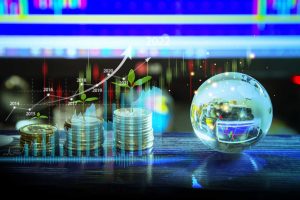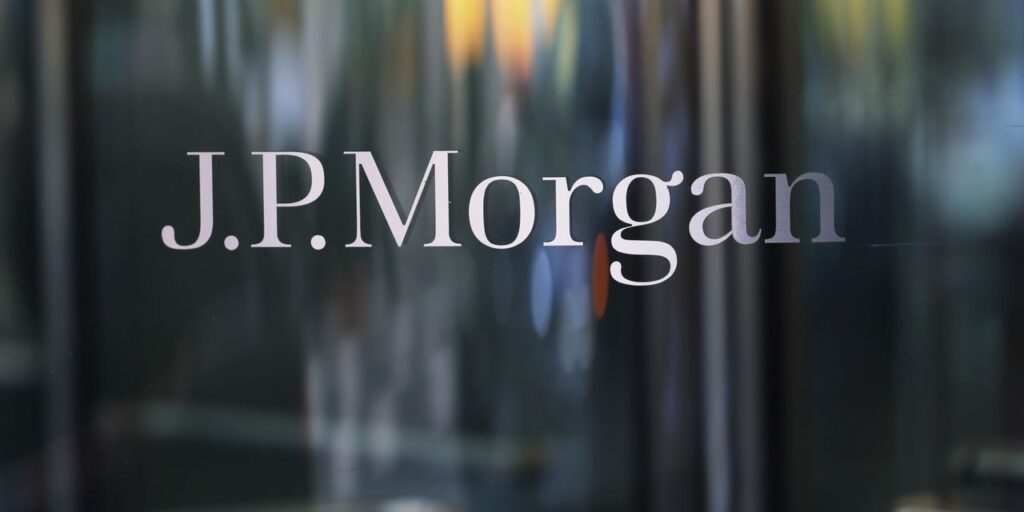Lots of big things have happened over first, second and third quarters of this year: persistent inflation, higher interest rates from the Federal Reserve, the return of student-loan payments, fluctuating recession anxieties, relentless prophesizing over AI and a tech-stock explosion that helped carry the S&P 500 Index
SPX
higher.
But as the third-quarter corporate earnings reporting season arrives this week after a recent pullback in stocks and dimming profit expectations, some say investors are still too optimistic. And others say Wall Street is waiting for something new to drive a more decisive market move, as downturn fears recede but higher-for-longer costs become a new normal for shoppers and businesses.
“They want that next big thing, and we haven’t had it,” said Jay Woods, chief global strategist at Freedom Capital Markets. “AI was the next big thing. That was the whole story the first half of the year. That story has changed, and now they want to see the results from it.”
Third-quarter per-share profit is set to fall 0.3% for the 500 companies in the S&P 500 Index collectively, according to FactSet. That would mark the fourth straight quarter of declines. While the index is up 12.2% so far this year, it retreated in August, largely amid concerns about sustained higher borrowing costs.
With JPMorgan Chase & Co and Delta Air Lines Inc. leading off the third-quarter earnings season, Wall Street will get a deeper sense of how those concerns are sitting with customers, after two years of price increases and “revenge” spending. Nike Inc.
NKE,
last month said consumers were “resilient,” Woods noted. With the holiday shopping season approaching, results in the weeks ahead will offer a more detailed report card of that resilience.
“Let’s see how resilient they are when they have to pay off their student loans, when they’re moving out of the house and they get that first mortgage at 8%,” Woods said.
Earlier this year, AI ambitions boosted stocks like Nvidia Corp.
NVDA,
and Microsoft Corp.
MSFT,
— companies that are big enough to move the broader markets on their own. But some Wall Street analysts have started to poke around at the costs of big tech’s AI investments, and the short-term impact on profits.
Richard Saperstein, chief investment officer at Treasury Partners, said investors should expect a “solid” earnings season. But he said that Wall Street’s earnings expectations were too high for the rest of this year and next year. And he said a whole lot will have to go right to make markets happy.
“The market right now is priced for perfection, as there are elevated expectations for a bullish slowdown where the economy slows enough to bring down inflation, but not enough to trigger a recession,” he said in emailed commentary.
“It is very hard to see how the Fed and economy will thread this needle,” he continued, “and we believe that markets expect everything to fall into place when it comes to inflation, the economy and rates, and that is a very high bar.”
This week in earnings
Beverage and snack giant PepsiCo Inc.
PEP,
reports during the week, as analysts raise questions about the company’s ability to grow sales volumes — or a measure of actual food and drinks sold — and put up sales gains this year after last year’s price increases. Domino’s Pizza Inc.
DPZ,
reports after executives this summer warned of more difficult trends in its delivery business. Walgreens Boots Alliance Inc.
WBA,
also reports, after the departure of its chief executive. UnitedHealth Group Inc.
UNH,
also reports.
Twelve S&P 500 companies, including three Dow members, are set to report during the week the week ahead, according to FactSet.
The calls to put on your calendar
Big bank earnings: Higher interest rates can be a double-edged sword for banks. One one hand, they boost the income banks take in on loans. On the other, they discourage customers from taking out the loans that banks depend on to make money.
This summer, investors clearly responded to the latter, sending bank stocks lower on rising rates and higher bond yields, which prices of debt and other securities held by banks. The higher rates have rippled through the economy, putting mortgages and car loans out of reach for some consumers.
Against that backdrop, JPMorgan
JPM,
Citigroup Inc.
C,
and Wells Fargo & Co.
WFC,
reports results on Friday. JPMorgan, as usual, will set the stage for the quarter, with Wall Street focused on Chief Executive Jamie Dimon’s big-picture take on the economy and the consumer. While the bigger banks have more at their disposal to absorb any shocks to the economy, the quarterly financials and forecasts could reflect other things investors have been worried about: Increased capital requirements, remote work’s impact on commercial real estate, geopolitical friction and efforts to fatten up reserves in case a downturn hits. Wells Fargo, meanwhile, is trying to put its regulatory difficulties in the rearview, and Citigroup is pulling back abroad as it restructures.
The number to watch
Delta sales, fuel costs: Delta Air Lines
DAL,
reports on Thursday. The air carrier will report as the revenge-travel boom shows signs of giving way to lower-key vacations, and as higher fuel prices clash with falling fares, the latter being a function of more available seats and flights. Delta has been able to shore up sales and profit with its premium seating classes — the sales split between its premium seats and main-cabin ones is close to 50/50 — and its lucrative partnership with American Express Co.
AXP,
But after the airline’s plans to limit cardholder access to Sky Club lounges drew backlash, Chief Executive Ed Bastian said the company would make “modifications.“
Read the full article here













